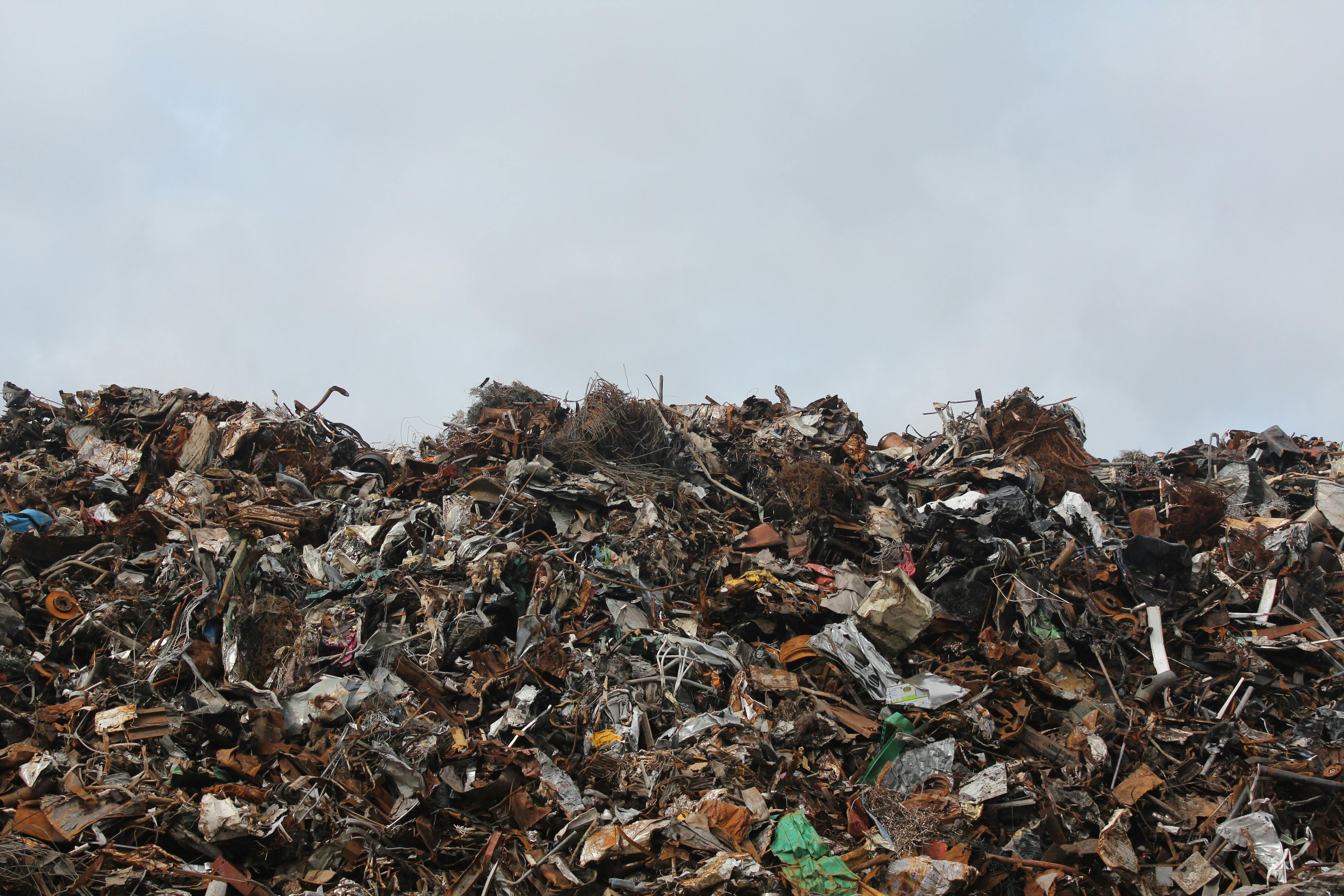Across the planet, over one billion tons of food waste is thrown away every year — that’s roughly a third of all food produced. In the UK alone, 40% of disposed food ends up decomposing in landfill.

When food waste reaches landfill, it begins to decompose and release methane gas into the air. Methane has a global warming potential that’s 23 times greater than carbon dioxide. But when managed correctly, food waste can become a valuable renewable energy source.
To combat this issue, the UK government has introduced the Simpler Recycling Reforms from April 2025, requiring businesses to separate food waste and mixed recycling from their residual waste. If your business hasn’t already set up for food waste recycling, now is the time to act.
Why is food waste a problem?
Beyond wasted meals, food waste is a major environmental and global issue. Globally, food waste accounts for around one third of all human-caused greenhouse gas emissions and generates 8% of greenhouse gases annually.

Beyond emissions, food waste is a huge drain on natural resources. Agriculture consumes around 70% of the world’s freshwater supply, whether for irrigation, crop spraying, or animal rearing. Yet, much of this water goes to waste when food isn’t eaten. According to the Natural Resources Defence Council (NRDC) in the United States, food waste alone accounts for a quarter of all water wasted globally.
And the environmental cost doesn’t stop there. Food production, transportation, and preparation already generate significant emissions. When food is discarded, these emissions are wasted too. Worse still, food waste in the wrong bin can contaminate recyclable materials, rendering them unrecyclable and sending even more waste to landfill.
What is food waste management?
Food waste management is all about how businesses handle and dispose of their food waste in a way that reduces environmental impact. The right approach will depend on the type of business, whether it’s a restaurant conducting food waste audits or an office implementing simple food waste bins.
But what happens once food waste leaves your premises? Preventing it from ending up in landfill is vital for the future health of the planet. Businesses have several sustainable options, including:
- Food donation and redistribution – Instead of disposal, surplus food can be donated to food banks, apps such as TooGoodToGo, homeless charities, and community kitchens.
- Anaerobic digestion – A highly effective method where food waste is broken down to produce renewable energy and nutrient-rich biofertiliser.
- Composting – A great smaller-scale solution, turning food scraps into organic compost for use in landscaping or agriculture.
By implementing a structured food waste management strategy, businesses can reduce costs, comply with waste regulations, and contribute to a more sustainable future.
How businesses can reduce food waste
Businesses across industries can take steps to cut food waste and improve sustainability. Here’s how:
For restaurants, cafes and hospitality businesses
Food waste is a major issue in hospitality, but there are several ways to tackle it:
- Conducting regular food waste audits: Kitchen staff should track food waste sources through routine audits. This helps pinpoint areas that need improvement, helping to pinpoint problem areas and improve efficiency.
- Improve inventory control: Effective stock management reduces waste by monitoring volumes, expiry dates, and portion yields, ensuring ingredients are used efficiently.
- Smarter menu planning: Offering daily specials based on surplus ingredients helps reduce food waste while keeping menus flexible and cost-effective. And when food is served, portion control is essential to ensure that as many customers as possible are left satisfied, without the waste.
- Train staff on waste reduction: Educate employees on recycling best practices and food waste disposal to encourage sustainable habits.
- Donating unsold food to charities: This is a super simple and extremely effective solution. By donating unsold food to charities, not only are you reducing food waste but you’re ensuring people in need are fed too.
For offices and workplaces

Even in non-hospitality settings, food waste is a problem. Offices can reduce waste by:
- Providing clear food waste bins: Under the new regulations, businesses must have a separate food waste collection. Clear signage helps employees dispose of waste correctly.
- Encouraging food sharing: A food-sharing programme allows employees to coordinate lunches, snacks, and excess food, cutting down on unnecessary waste.
- Storing food properly: Ensure that staff kitchens have the necessary supplies to help employees properly store food, including airtight containers and storage bags. This can prolong the lifespan of food items and reduce food waste.
- Sharing leftovers: By creating a culture of sharing leftovers in the office, whether sandwiches after a meeting or cake after someone’s birthday, you make it second nature to reduce food waste. Set up a designated area where employees can place and take these items.
How First Mile’s food waste recycling works
At First Mile, we recycle your food waste to produce renewable energy through a process called anaerobic digestion. We collect your food waste with flexible wheelie bin collections up to three times a day, seven days a week. This includes:
- Food waste: cooked and un-cooked
- Kitchen waste: fruit, vegetable peelings, and scraps
- Tea bags and coffee grounds
- Bones and shells
- Plastic waste
Once collected, your food waste is transported to our sorting and recycling facilities. There, it enters an anaerobic digester, where microbes break it down, producing methane gas. Instead of releasing harmful emissions, we capture and convert this gas into electricity, helping power homes and businesses.
With First Mile, you’re not just disposing of food waste — you’re contributing to a sustainable, circular economy. Get in touch today to set up food waste recycling for your business and take a step toward a greener future.
FAQs about food waste management
Why can’t food waste go in general waste?
If food waste ends up in general waste, it goes straight to landfill instead of being recycled. As it decomposes, it releases methane gas, which has 23 times the global warming potential of carbon dioxide. Separating food waste for recycling helps reduce emissions and turn waste into a valuable energy source.
How does anaerobic digestion work?
Anaerobic digestion is a natural process where food waste is broken down into biogas and digestate. Food waste is fed into a sealed reactor where the decomposition process happens in a controlled environment. This allows the methane gas to be caught and used. All food waste is biodegradable, so the process mimics human digestion.
What are the 2025 food waste regulations?
The Simpler Recycling Reforms are now in effect and mean that business premises (excluding micro-firms with less than 10 full-time employees) are required to:
- Separate food waste collections: You must arrange for separate collection of your food waste, diverting it from general waste.
- Comply with waste presentation rules: food waste must be collected separately and not mixed with recyclables or other waste streams.
Need help getting started with Simpler Recycling? Speak to our expert team.


